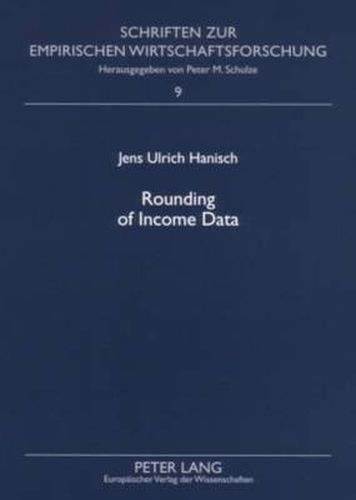Readings Newsletter
Become a Readings Member to make your shopping experience even easier.
Sign in or sign up for free!
You’re not far away from qualifying for FREE standard shipping within Australia
You’ve qualified for FREE standard shipping within Australia
The cart is loading…






Income questions are frequently answered with rounded values or income brackets. This has an impact on the quality of data, which is demonstrated for the European Community Household Panel (ECHP) and the German Socio-Economic Panel (SOEP). A matching of register and interview data for the Finnish sub-sample of the ECHP allows an analysis of the measurement error caused by rounding with regard to cross-sectional statistics and the mobility of incomes. The emphasis is on income quantiles, poverty measures and income mobility. The finding is that most income values are rounded after one or two significant digits, and the accuracy improves only slightly after the initial wave. The results are that rounding behaviour can change across panel waves, and can also be different across countries and types of income. Characteristics like gender, job type and mode of interview were significantly correlated with rounding behaviour.
$9.00 standard shipping within Australia
FREE standard shipping within Australia for orders over $100.00
Express & International shipping calculated at checkout
Income questions are frequently answered with rounded values or income brackets. This has an impact on the quality of data, which is demonstrated for the European Community Household Panel (ECHP) and the German Socio-Economic Panel (SOEP). A matching of register and interview data for the Finnish sub-sample of the ECHP allows an analysis of the measurement error caused by rounding with regard to cross-sectional statistics and the mobility of incomes. The emphasis is on income quantiles, poverty measures and income mobility. The finding is that most income values are rounded after one or two significant digits, and the accuracy improves only slightly after the initial wave. The results are that rounding behaviour can change across panel waves, and can also be different across countries and types of income. Characteristics like gender, job type and mode of interview were significantly correlated with rounding behaviour.